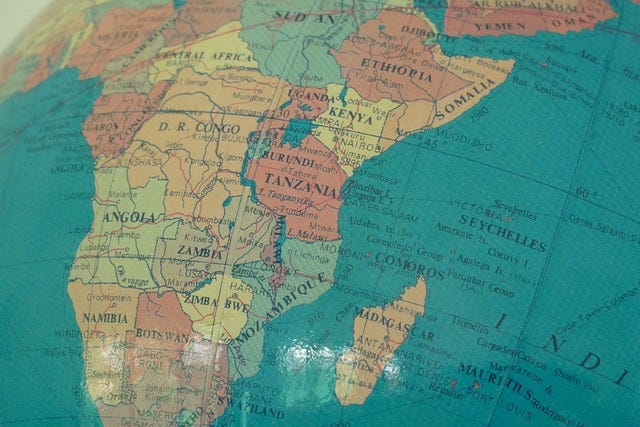The Mauritius Ministry of Health last week reported the first ever case of mpox in the country.
The confirmed, imported case is a 49-year-old male who travelled from Nigeria to Mauritius via Kenya, on Kenya Airways. The confirmation for mpox was made at the Central Health Laboratory following a sample (skin lesions) collected from the index case testing positive by polymerase chain reaction. The patient is currently under isolation and is in stable condition.
Elsewhere in Africa, a total of 49,310 cases of mpox, of which, 10,672 have been confirmed, and 1,059 deaths [case fatality rate (CFR): 2.15%] have been reported from 19 African Union (AU) Member States during the first 10 months of 2024.
The Democratic Republic of the Congo (DRC) accounts for the bulk of the confirmed cases and deaths with 8,607 and 1,049 reported, respectively, from all 26 province.
The clade la and lb mpox strains were isolated from the confirmed cases.
In DRC, 47,547 people have been vaccinated to date, resulting into a 103.5% vaccination coverage.
On July 25, 2024, the Ministry of Health of Burundi declared an outbreak of mpox following the confirmation of three cases by the National Reference Laboratory of the National Institute of Public Health.
Since then in Burundi, mpox cases continue to rise significantly. Cumulatively, 3,361 suspected cases, of which 1,509 were laboratory-confirmed, and no deaths of mpox have been reported from 43 of 49 health districts in Burundi. Children <15 years accounted for 48.2% of cases and 51.4% of confirmed cases were males.
In addition, increasing numbers of clade 1b mpox are being reported in the neighboring countries of Burundi, Kenya, Rwanda and Uganda.
Based on available epidemiological data, this clade has been spreading rapidly among adults through close physical contact, including sexual contact identified within networks of sex workers and their clients. As the virus spreads further, the affected groups are changing, with the virus also taking hold within households and other settings.
According to WHO, mpox is an infectious disease caused by the monkeypox virus (MPXV). There are two known clades of MPXV: clade I, previously called the Congo Basin clade, which includes subclades Ia and the recently identified Ib; and clade II, previously called the West African clade, which includes subclades IIa and IIb. Subclades Ia and Ib have been defined based on the emergence of subclade Ib in the South Kivu province of the Democratic Republic of the Congo, where it has predominantly spread through sexual contact. Subclade Ia is currently considered to encompass all other strains of Clade I that are not Ib.
MPXV transmits between humans through close contact with lesions, body fluids, infectious respiratory particles or contaminated materials, or from animals to humans through contact with live animals or consumption of contaminated bushmeat. Mpox causes signs and symptoms which usually begin within a week of exposure but can start one to 21 days later. Symptoms typically last for two to four weeks but may last longer in someone with a weakened immune system. Normally, fever, muscle aches and sore throat appear first, followed by skin and mucosal rash. Lymphadenopathy (swollen lymph nodes) is also a typical feature of mpox, present in most cases. Transmission through sexual contact has been observed to lead to the appearance sometimes of only genital lesions. Children, pregnant women and people with weak immune systems are at risk of developing complications and dying of mpox.
The primary diagnostic test for MPXV infection is polymerase chain reaction (PCR). The best diagnostic specimens are taken directly from the rash – skin, fluid or crusts – collected by vigorous swabbing.
Treatment is based primarily on managing clinical symptoms, ensuring skin care, reducing pain, and preventing and managing complications. Where available through emergency or compassionate use programmes, specific antiviral medications such as tecovirimat can also be used in the treatment of mpox, particularly for severe cases or individuals at higher risk of complications.
Three vaccines are currently available for use to prevent mpox in different countries (MVA-BN, LC16-KMB, and OrthopoxVac - the latter not yet commercialized). WHO recommends use of MVA-BN or LC16 vaccines when the others are not available.
Vaccination is recommended by WHO for individuals at high risk of exposure.





